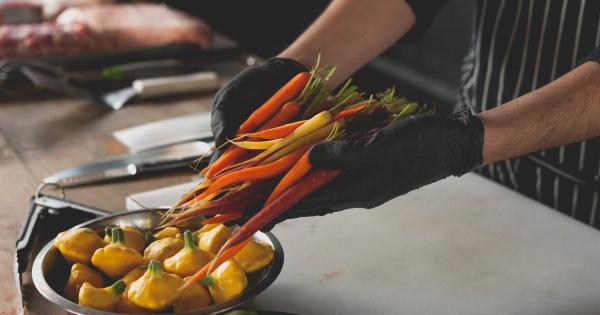Summer is a great time to enjoy picnics, barbecues, and outdoor dining. However, warm weather can also increase the risk of foodborne illnesses.
According to the Centers for Disease Control and Prevention (CDC), 48 million people in the United States get sick from contaminated food each year. To stay safe and healthy this summer, here are some food safety tips and tricks to keep in mind.
1. Clean Everything
One of the most important things you can do to prevent foodborne illness is to keep everything clean. Wash your hands with soap and water for at least 20 seconds before and after handling food.
Clean all utensils, cutting boards, and surfaces with hot, soapy water. Also, make sure to wash all fruits and vegetables thoroughly before eating or cooking.
2. Keep Cold Foods Cold and Hot Foods Hot
When it comes to food temperature, remember the “danger zone” between 40 and 140 degrees Fahrenheit. Bacteria can grow quickly in this temperature range, so it’s important to keep cold foods cold and hot foods hot.
Use a thermometer to ensure that food is cooked to the appropriate temperature and keep it chilled or heated until serving time. When transporting food, use insulated coolers or containers to keep food at a safe temperature.
3. Avoid Cross-Contamination
Cross-contamination occurs when bacteria from one food item contaminates another. To prevent cross-contamination, keep raw meats and their juices away from ready-to-eat foods. Use separate cutting boards, utensils, and dishes for raw and cooked foods.
And, always wash your hands and surfaces with hot, soapy water after handling raw meat or poultry.
4. Don’t Leave Food Out for Too Long
Summer heat can make food spoil quickly, so don’t leave food out for more than two hours (or one hour if the temperature is above 90 degrees Fahrenheit). After that, bacteria can grow rapidly and cause illness.
If you’re unsure how long food has been sitting out, it’s best to throw it away.
5. Thaw Food Safely
Thawing food properly is essential to avoid bacterial growth. The safest way to thaw food is in the refrigerator. However, if you’re in a hurry, you can also thaw food in cold water or use the microwave.
Just make sure to cook it immediately after thawing.
6. Use Safe Water and Ice
When it comes to drinks, make sure to use safe water and ice. If you’re unsure about the water quality, boil it for at least one minute to kill any bacteria or parasites. When making ice, use only safe water.
And, if you’re purchasing ice, make sure it comes from a reputable source.
7. Be Careful with Buffet-style Food
Buffet-style food can be a breeding ground for bacteria, so be careful when eating at buffets. Make sure hot foods are hot and cold foods are cold.
Don’t eat food that has been sitting out for too long and avoid double-dipping or putting used utensils back in the serving dish. If you’re hosting a buffet-style meal, make sure to keep the food at safe temperatures and provide clean utensils for each dish.
8. Check Expiration Dates
Expired food can be dangerous, so make sure to check expiration dates on all food items. Avoid consuming food that has passed its expiration date or has been sitting in the refrigerator for too long.
9. Use a Food Thermometer
Using a food thermometer is the only way to ensure that meat, poultry, and fish are cooked to a safe temperature. Insert the thermometer into the thickest part of the meat (without touching bone or gristle) and wait for the temperature to register.
10. Practice Safe Grilling
Grilling is a popular summer pastime, but it can also be a source of foodborne illness. To grill safely, make sure to preheat the grill before cooking and keep the temperature at a consistent level.
Don’t partially cook meat or poultry and finish cooking it later. Use a food thermometer to ensure that meat is cooked to a safe temperature. And, always use separate utensils and plates for raw and cooked meats.
Conclusion
By following these tips and tricks, you can enjoy a safe and healthy summer. Remember to keep everything clean, keep food at safe temperatures, avoid cross-contamination, and check expiration dates.
With a little bit of effort, you can prevent foodborne illness and enjoy all the delicious food that summer has to offer.



























